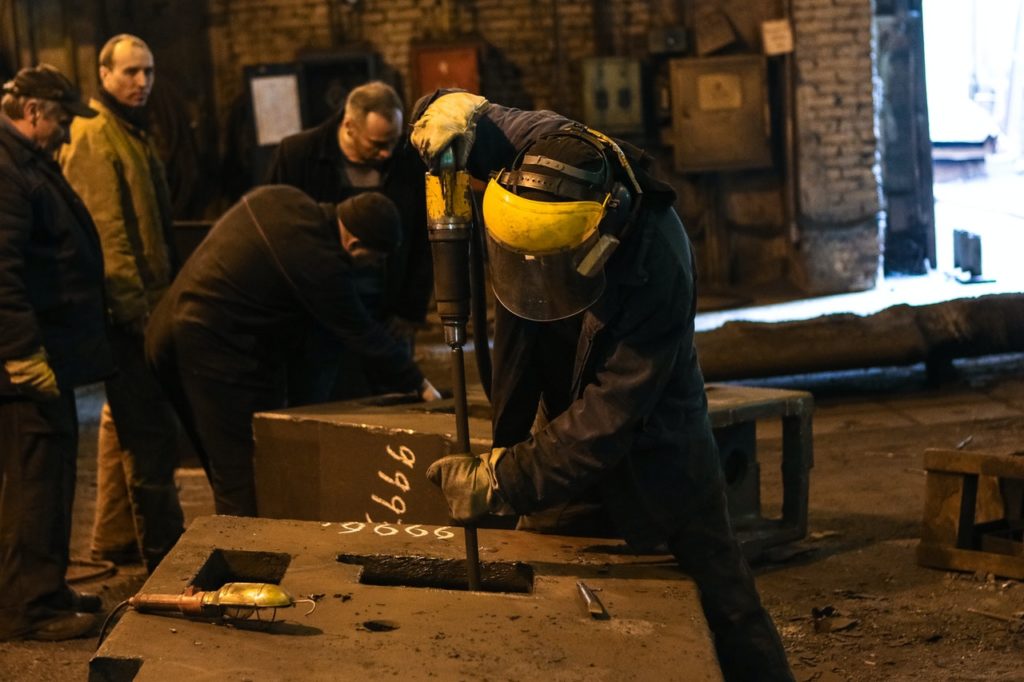Physically demanding jobs are undoubtedly tough on the body. The repetitive motions and increased use of power that are required in most manual labor jobs can have lasting effects on one’s body, particularly the back, shoulders, knees, and legs. This can lead to frequent injuries and a more rapid rate of physical deterioration compared to bodies that work sedentary jobs, which often results in a faster decline of overall health, and even early death.
But of course, not all manual laborers are automatically going down that path. With these workplace tips and lifestyle changes, you can minimize the lasting effects of manual labor on your body, and ultimately help secure your physical health as you age.
Wear your PPE
Personal protective equipment (PPE) is your first barrier of defense against physical harm. It should go without saying that you must wear your PPE at all times, but not all laborers follow this rule. Sometimes, they take off a part of their PPE, such as their helmet or safety gloves, to make working more comfortable. This is a mistake that can lead to unnecessary injuries, and sometimes even fatalities.
Know how to use safety materials
There are many types of safety materials in a construction site and other types of labor workplaces, from fire equipment to first aid kits to traffic control. To avoid accidents and take immediate action in case one does happen, learn how to use the safety materials provided in the workplace.
Correct your lifting techniques
Perhaps the most common body part that gets injured in manual labor is the back. Manual laborers often have to lift heavy objects and transport them elsewhere. Hence, proper lifting is imperative to avoiding injuries and unnecessary body pain.
Making a habit out of poor lifting will eventually lead to tissue damage over the course of months or years. The resulting effects on the body include pain in the lower back, difficulty straightening the back from a bent-over position, and pain when standing up for an extended period of time, among other ailments. In worst cases, one wrong lift can tear the muscles or cause a slipped disk, which can take a lot of time to recover.

Eat a proper diet
Since you are expending a lot of energy in doing manual labor, you need a corresponding amount of calories to maintain an energy balance. Eat too little and you could drop down to an unhealthy weight; eat too much and you could become overweight or obese. In manual labor, either of these cases is not an ideal physical state.
Eat just the right amount of calories you need per day, depending on your height, age, and level of physical activity. Consult with your physician or a dietitian to determine exactly how many calories you need a day. Then, come up with a diet that will fulfill your carbohydrate, protein, and fat needs accordingly–with emphasis on fruits, vegetables, whole grains, lean meat, and healthy fats.
Moisturize your skin
Manual labor usually occurs outdoors where you are exposed to the sun. Not only that, but you are also working amongst a high amount of pollutants, particularly dust. Pollutants and sun exposure is a great combination for dry, cracked skin, which can rapidly decrease your skin’s quality as time goes by, making you look and feel old much faster than you would want.
Slow down the deterioration of your skin by moisturizing regularly. Use lotions, hand creams, or body oils to re-hydrate your skin and lock in moisture. This is also a great way to soften calluses, which are very common among manual laborers because of the constant use of tools and machinery.
Don’t overdo it
Overexertion is one of the quickest ways to injure yourself and is also a significant factor in physical deterioration. That said, do not push your body beyond its limits. Don’t lift anything heavier than you can handle. Don’t go to work if you feel weak and sick. Don’t continue working if you already feel exhausted. As a manual laborer, you are likely more physically able than a regular person, but you must respect your physical boundaries nonetheless. Not only will it help avoid injuries, but it will also reduce the risk of your body developing lasting effects from manual labor.
It can take years to feel the lasting effects of manual labor on your body, and by then, it may be too late to do anything about it. Take action now before the physical demands of your job take a toll on your body; make these simple changes in your lifestyle as well as behavior in the workplace.


